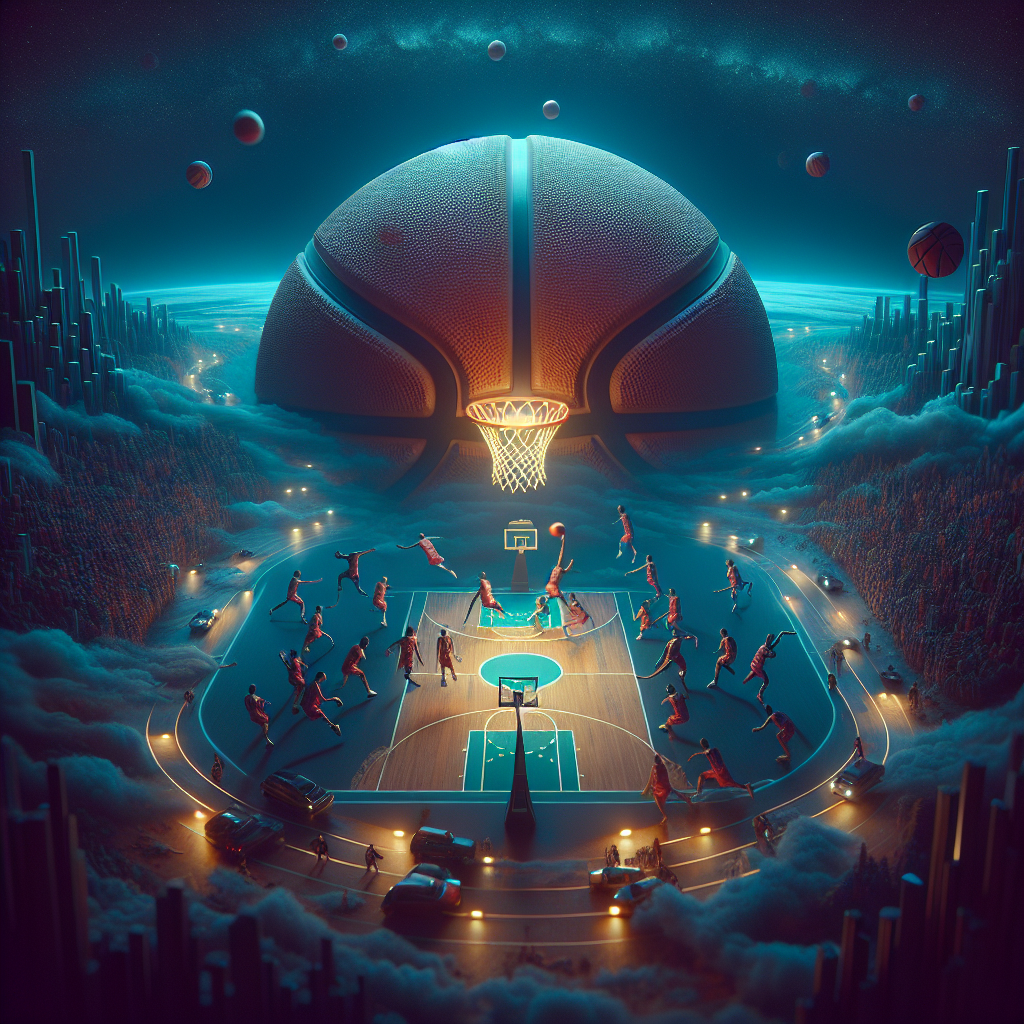Lakers continue to sink with loss against Grizzlies

Analyzing the Lakers’ Defensive Struggles Against the Grizzlies
The Los Angeles Lakers’ recent performance against the Memphis Grizzlies has once again highlighted their ongoing defensive struggles, a concern that has been increasingly evident throughout the season. As the Lakers continue to sink in the standings, their inability to effectively manage defensive assignments and rotations has become a focal point for analysts and fans alike. The game against the Grizzlies served as a microcosm of the broader issues plaguing the team, as they failed to contain Memphis’ dynamic offensive threats, ultimately leading to another disappointing loss.
One of the primary issues facing the Lakers is their lack of cohesion on the defensive end. Despite possessing a roster filled with experienced players, the team has struggled to communicate effectively, often leading to missed assignments and open opportunities for their opponents. This was particularly evident in their matchup against the Grizzlies, where Memphis capitalized on the Lakers’ defensive lapses by consistently finding open shooters and exploiting mismatches. The Grizzlies’ ability to move the ball efficiently and create high-percentage shots further exposed the Lakers’ defensive vulnerabilities, as they were unable to adjust and respond to the offensive onslaught.
Moreover, the Lakers’ struggles with defensive rebounding have compounded their issues. Allowing second-chance opportunities has been a recurring theme, and the Grizzlies took full advantage of this weakness. By dominating the offensive glass, Memphis was able to extend possessions and apply additional pressure on the Lakers’ already beleaguered defense. This inability to secure rebounds not only resulted in easy points for the Grizzlies but also prevented the Lakers from establishing any rhythm on the offensive end, as they were frequently forced to defend for extended periods.
Transitioning to individual performances, the Lakers have also been hindered by inconsistent defensive efforts from key players. While some members of the roster have shown flashes of defensive prowess, the lack of sustained intensity and focus has been detrimental to the team’s overall performance. Against the Grizzlies, this inconsistency was apparent as certain players struggled to contain their assignments, leading to breakdowns in the defensive scheme. The absence of a reliable defensive anchor has further exacerbated these issues, as the team lacks a consistent presence to rally around and set the tone on that end of the floor.
In addition to these challenges, the Lakers’ defensive woes have been magnified by their struggles in transition defense. The Grizzlies, known for their fast-paced style of play, exploited this weakness by pushing the tempo and scoring easy baskets in transition. The Lakers’ inability to effectively get back on defense and communicate in these situations allowed Memphis to dictate the pace of the game, further highlighting the need for improvement in this area.
As the Lakers continue to search for answers, it is clear that addressing their defensive shortcomings will be crucial to reversing their fortunes. The loss to the Grizzlies serves as a stark reminder of the work that lies ahead for the team. By focusing on improving communication, rebounding, and transition defense, the Lakers can begin to build a more cohesive and effective defensive unit. However, time is of the essence, and if these issues are not addressed promptly, the Lakers risk further sinking in the standings and missing out on their postseason aspirations.
The Impact of Injuries on the Lakers’ Performance

The Los Angeles Lakers, a team with a storied history and a roster often brimming with talent, have found themselves in a challenging position this season. Their recent loss against the Memphis Grizzlies has only exacerbated concerns about their performance, highlighting a critical issue that has plagued the team: injuries. The impact of injuries on the Lakers’ performance cannot be overstated, as they have significantly hindered the team’s ability to maintain consistency and competitiveness on the court.
Injuries have been a persistent thorn in the side of the Lakers, affecting key players and disrupting the team’s rhythm. The absence of star players due to injuries has forced the team to rely heavily on their bench and less experienced players, which has, in turn, affected their overall performance. For instance, when a player like LeBron James, who is not only a leader on the court but also a significant contributor to the team’s scoring and playmaking, is sidelined, the Lakers struggle to fill the void. This reliance on a few key players makes the team vulnerable when those players are unavailable, leading to a noticeable dip in performance.
Moreover, the constant shuffling of lineups due to injuries has prevented the Lakers from developing the chemistry and cohesion necessary for success in the highly competitive NBA. Basketball is a team sport that thrives on synergy, and the lack of a stable lineup has made it difficult for the Lakers to establish a consistent playing style. This inconsistency is evident in their recent games, where they have struggled to find a rhythm and maintain leads, ultimately resulting in losses such as the one against the Grizzlies.
In addition to affecting team dynamics, injuries have also taken a toll on the Lakers’ defensive capabilities. Defense is often about effort and communication, and when players are frequently in and out of the lineup, it becomes challenging to maintain the defensive intensity required to compete at a high level. The Lakers have shown flashes of defensive prowess, but without a consistent roster, sustaining that level of play has proven difficult. This has allowed opponents to exploit mismatches and score more easily, further contributing to the team’s struggles.
Furthermore, the psychological impact of injuries cannot be ignored. The constant uncertainty surrounding player availability can affect team morale and confidence. Players may feel added pressure to perform in the absence of their injured teammates, which can lead to forced plays and mistakes. This pressure is compounded by the expectations placed on a franchise like the Lakers, where success is not just desired but expected. The weight of these expectations, combined with the reality of an injury-riddled roster, creates a challenging environment for both players and coaching staff.
In conclusion, the impact of injuries on the Lakers’ performance is multifaceted, affecting everything from player availability and team chemistry to defensive capabilities and psychological well-being. As the season progresses, the Lakers will need to find ways to mitigate these challenges, whether through strategic rotations, player development, or perhaps even roster changes. Until then, the team will continue to face an uphill battle, as evidenced by their recent loss to the Grizzlies. The road to recovery and success is fraught with obstacles, but with resilience and adaptability, the Lakers can hope to turn their fortunes around.
Coaching Decisions Under Scrutiny as Lakers’ Losing Streak Continues
The Los Angeles Lakers, a team with a storied history and high expectations, find themselves in a precarious position as their losing streak continues, most recently marked by a disappointing loss to the Memphis Grizzlies. This defeat has not only intensified scrutiny on the players but has also brought the coaching decisions under the microscope. As the Lakers struggle to find their footing, questions about strategic choices and leadership have become increasingly prominent.
In the latest matchup against the Grizzlies, the Lakers displayed moments of brilliance, yet these were overshadowed by lapses in defense and inconsistent offensive execution. The Grizzlies, capitalizing on these weaknesses, managed to outpace the Lakers, securing a victory that further deepened the woes of the Los Angeles team. This loss has added to a growing list of games where the Lakers have failed to close out effectively, raising concerns about the decision-making process on the sidelines.
One of the primary areas of concern has been the rotation strategy employed by the coaching staff. Critics argue that the frequent changes in player rotations have disrupted the team’s rhythm, preventing them from developing the necessary chemistry on the court. While it is essential to adapt to the dynamics of each game, the lack of a consistent lineup has left players struggling to find their roles, leading to a disjointed performance. Moreover, the decision to bench key players during crucial moments has been questioned, as it often leaves the team without its most experienced leaders during pivotal stretches.
Furthermore, the offensive strategies have come under fire for their predictability and lack of innovation. Opponents have seemingly deciphered the Lakers’ playbook, making it easier to counter their moves. This has resulted in a stagnant offense that relies heavily on individual brilliance rather than cohesive team play. The coaching staff’s reluctance to adapt and introduce new offensive schemes has been a point of contention, as it limits the team’s ability to exploit the weaknesses of their adversaries.
Defensively, the Lakers have struggled to maintain intensity throughout the game. While they have shown flashes of solid defensive play, these efforts have been inconsistent, often faltering in the face of sustained pressure from opponents. The coaching staff’s challenge lies in instilling a defensive mindset that can endure the rigors of a full game, ensuring that players remain focused and disciplined. This requires not only tactical adjustments but also motivational strategies to keep the team engaged and committed.
In light of these challenges, the coaching staff is under immense pressure to turn the season around. The responsibility of guiding a team with such high expectations is formidable, and the current losing streak has only amplified the scrutiny. It is imperative for the coaches to reassess their strategies, taking into account the strengths and weaknesses of their roster. By fostering a more cohesive unit and implementing adaptive strategies, the Lakers can hope to regain their competitive edge.
As the season progresses, the Lakers’ ability to overcome this slump will largely depend on the decisions made by their coaching staff. The path to redemption is fraught with challenges, but with careful analysis and strategic adjustments, there remains hope for a turnaround. The coming games will be crucial in determining whether the Lakers can rise above their current struggles and reestablish themselves as formidable contenders in the league.

